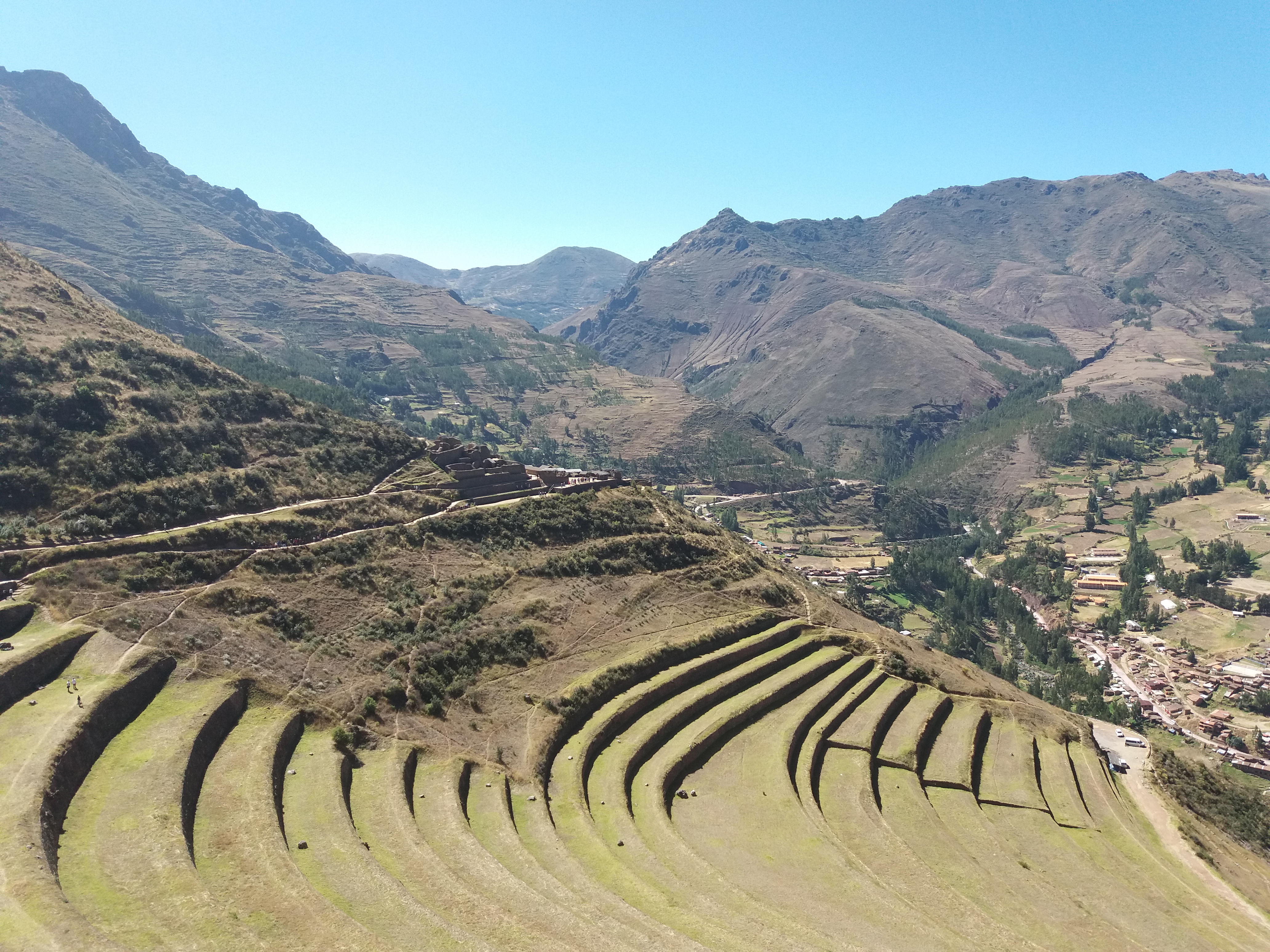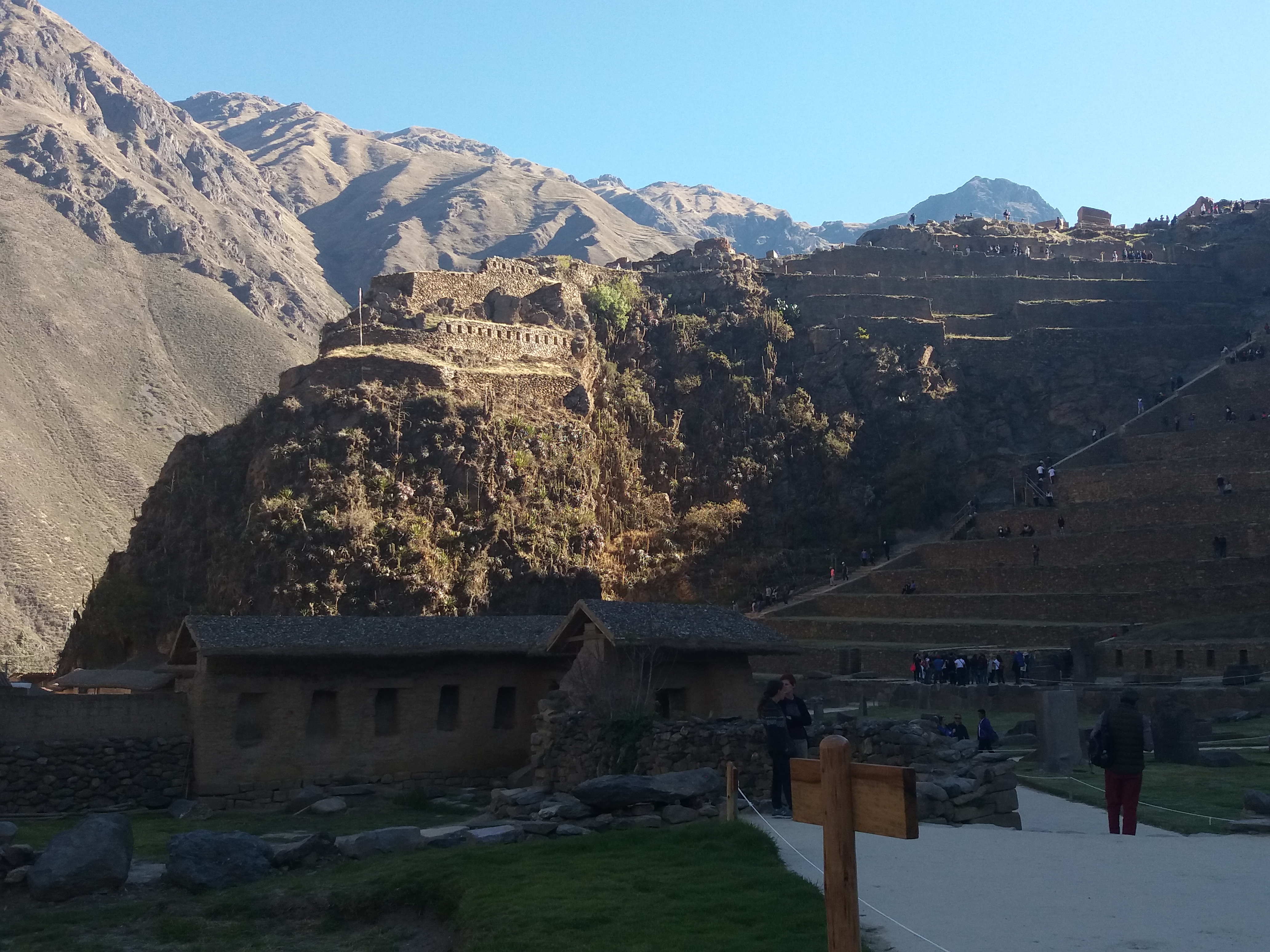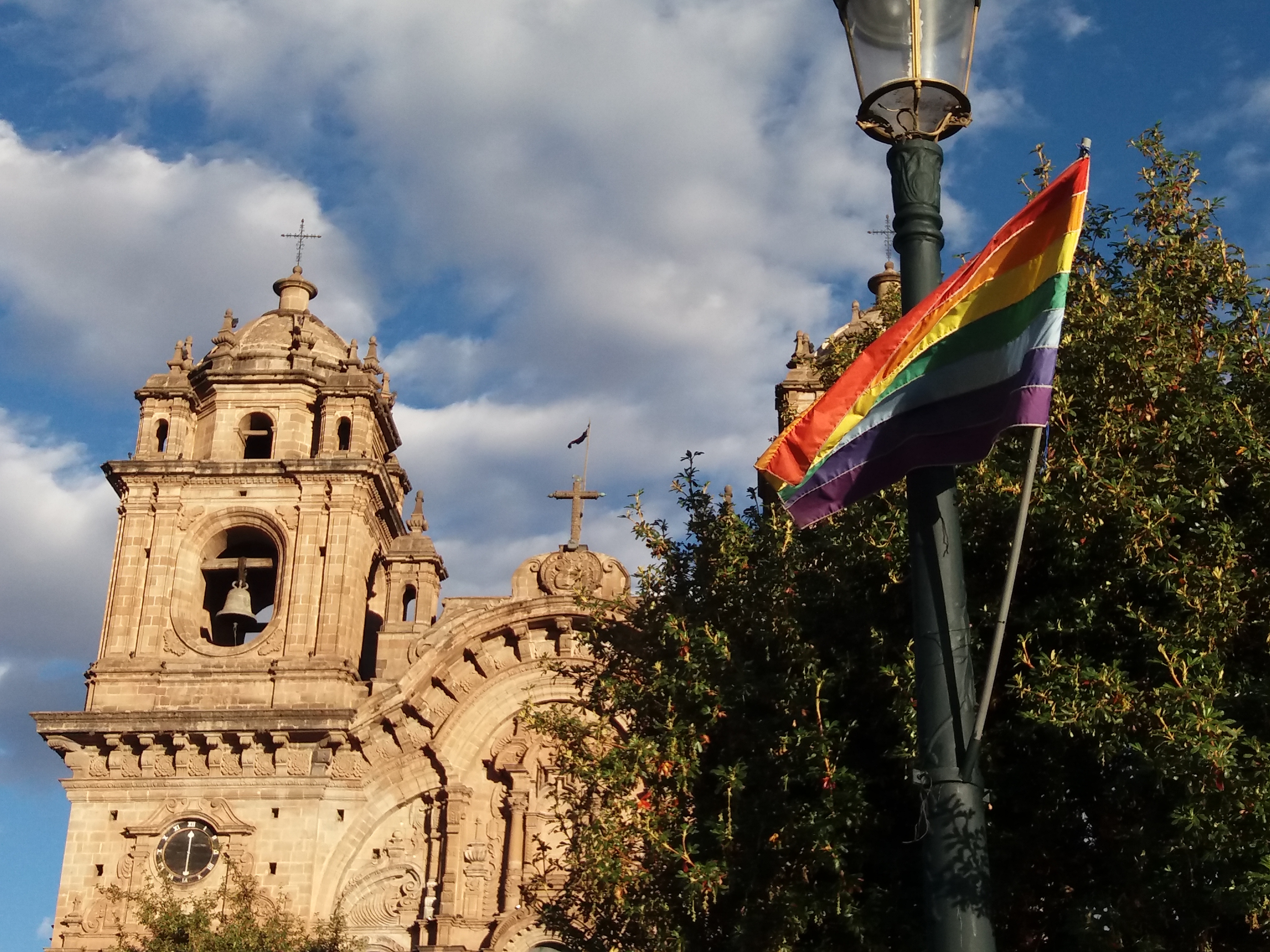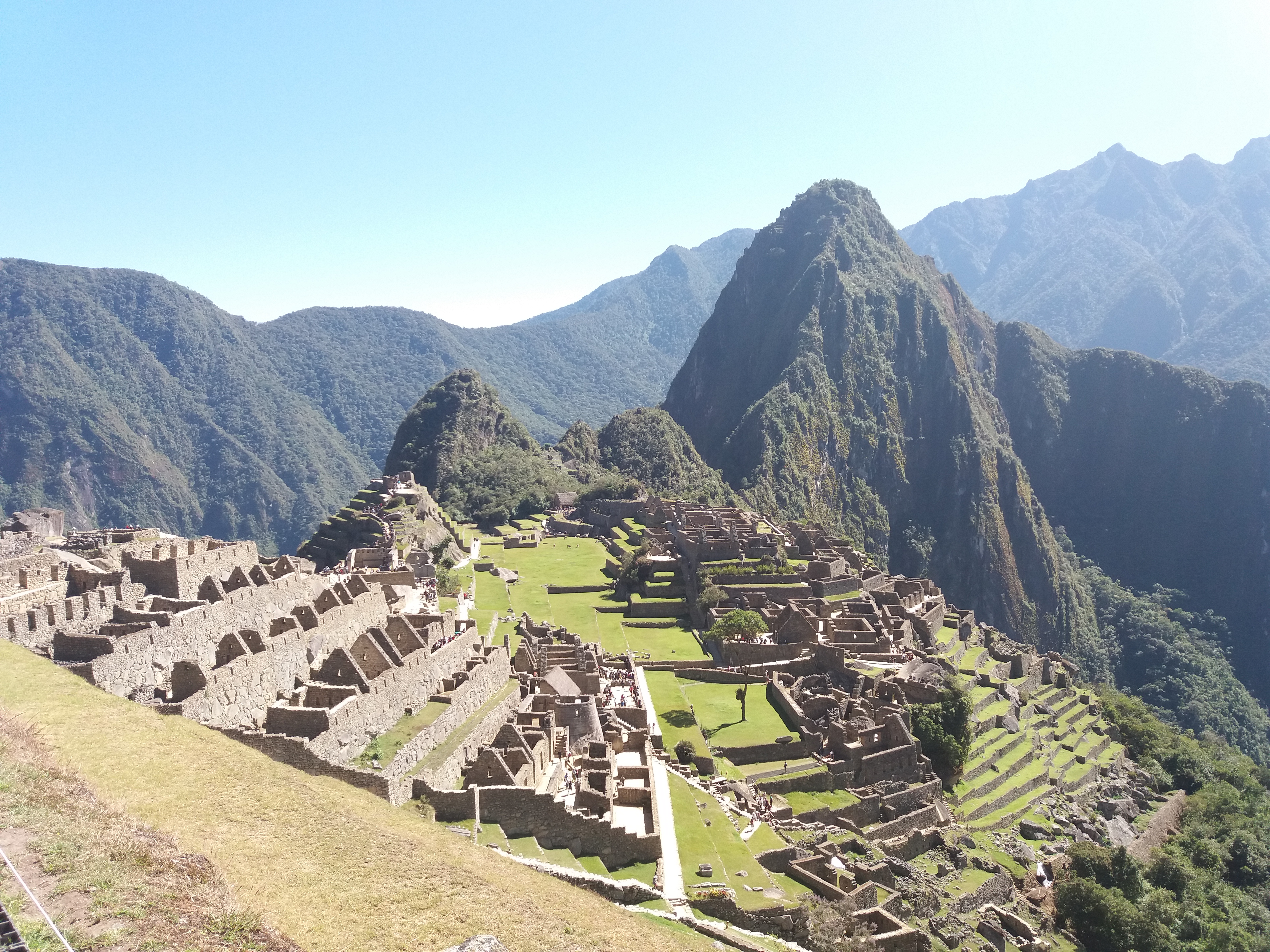There is a lot of day trips you can take from Cuzco. The one I tried is the tour to Sacred Valley and I can recommend it. Sure, you will need to wake up early, but who would want to sleep long at their vacation, right? Anyway, it is a whole day tour between diverse Inka sights and it is perhaps the most authentic Peruvian experience, similar to Colca Valley. There is a lot of things to do in Sacred Valley. it is essentially a lot of small villages with Inca ruins on every step. I think that only that way you will see how big was the Inca civilization.
Things to do in Sacred valley
Table of Contents

Let’s start with something very basic and that is – what is Sacred Valley. This very famous valley is located close to Cuzco next to the river Urubamba. Sacred Valley is pretty big, it is about 50 km from Cuzco, all the way to Machu Picchu. You can find here about 10 different sights. All of them used to be a very important part of the Inca civilization.
Pisac village and ruins

Our very first stop was just to watch the view from the valley
The first place that we visited in Sacred Valley was a village called Pisac. Pisac is a very old village with a big tradition of making silver and jewelry. They took us to one of the places where they make traditional jewelry and talk a bit about it. But to be honest, it felt a lot more like a sales pitch for the owners. I mean sure they talked a lot about what they are doing and what is so special about their silver, but after that, we had half an hour break. Except for the silver jewelry shop, there is plenty of other shops that will offer you different kind of souvenirs including jumpers, cardigans, and some Peruvian toys as well.
Later on, we finally get to the Pisac ruins. Before you come here, be aware, that they are huge and you can probably spend here the whole day. There is a lot of o hiking paths around and you can walk a lot around the ruins. Because of that, it felt kind of fair that we could spend here an hour and a half on our own, hiking whenever we want. Most of the people tried to hike to the top of the military building. I did that too, but I have to say, there are so many little streets in the ruins that it is really hard to get there and not get lost on your way.
Pisac is mainly known for the military fortress that is there. Archeologist thinks that this village was supposed to protect the southern gate to the Sacred Valley.
Ollantaytambo ruins

This little cozy village pleases the tourists not just by the train to Machu Pichu, but also there are other Inca ruins. I liked this site a lot better than the one before. I actually don’t know, but somehow it was cozier and not so huge, so I had a better feeling about hiking most of the site by myself than before, where I kinda felt like I could have been there longer.
Our guide told us a lot about these ruins. Perhaps one of the things that I liked was the fact that they kept the water temple. Up till now, I have heard only about the sun temples and how they predict things from start. Water temple was pretty new and I liked that they kept it running. So we could come to the room where was nothing but just running water around the stones.
Also, this place had an amazing view. Perhaps one of the most amazing views I have seen from all of our tour to the sacred valley. Mountains everywhere – I mean who wouldn’t like that.
The great thing about visiting this village was the fact that the people who wanted to stay for their Machu Pichu trip on the next day were free to do so. So it solved their issue of how to get here.
Chinchero

The last part of the trip was in front of us. First, we visited Chinchero village where Quechua women talk to us about all the traditions that they have. In general, the Chinchero village is mostly known for its handicrafts. So you can buy here a lot of beautiful jumpers and cardigans. I bought one even though I already had one. The women in the village told us a lot about how they color the jumpers in the traditional Inca way. Sometimes they used herbs, sometimes they would use a Pulver from bone fragment to color the sweaters. I mean animal bones, but still. They also show us how they knit them.
Later they talk about a tradition that I consider a lot sadder. But that is only because I had guinea pigs since I was a little girl. So they showed us the cages where they keep them. They are treated as pets until they decide to eat them.
After getting to know more about the culture, we went to see the local ruins. It was already evening and so it was just a shortstop. It was already around 6, the sun went slowly down and we started to be cold. And also the site that we went to wasn’t particularly big or special. Most of it was renovated, so there was almost nothing original. So this stop was mainly about the local culture.
Maras
View this post on Instagram
Or as you might know it – the salt field. It is a little village with the salt field. It is about 40 km from Cuzco and it is a very popular place if you want nice pictures on your Instagram.
You can see here also the colonial church and local Inca ruins but most people are here for the sand field. Mainly because it is something that you won’t be able to see it anywhere else in Sacred Valley. Making salt is something very traditional for Maras village and local culture. Anyone who would like to harvest salt here must be a part of the Maras community. Only these families are allowed to have their little salt field.
UPDATE: Since June 2019, tourists are no longer allowed to wander around the salt ponds. The main reason is the contamination of salt. Which happened a couple of times. So now if you want to visit Maras, you can see the ponds only from distance.
Moray
View this post on Instagram
That would be the site with round Inka gardens around. For me it kind of looks like some Greek theatre. Even archeologists would agree that those ruins are very special and one of the kind. The plateaus have large distances between each other, sometimes up to 30 meters. This makes a very unique phenomenon – there is a 15°C temperature distance between the first one and the last plateau. Archeologists still don’t know the purpose of this ruin. But there is a theory that since the plateaus were built mainly for agriculture, the Incas probably wanted to have different environments for all the plants that they were using.
Pikillaqta
View this post on Instagram
These ruins are much closer to Cuzco than Moray or Maras. And in fact, they are not even Inca ruins. They were built by Wari people and are kind of older than other ruins in Sacred Valley. According to archeologists, the site was built around 650 AD and it was supposed to be a major source of food.
Pikillaqta is only about 20 km from Cuzco and you will have a chance to see a different kind of architecture than you normally would in Sacred Valley. The wari people were living here even before Incas and they build their canal system and agriculture.
Tipón
View this post on Instagram
Another Inca ruins. This one is also relatively close to Cuzco – only about 20 km. Similarly to other ruins, you will also see here the typical Inca plantages, traditional for their agriculture. But unlike anywhere else, you can see here also a network of water channels. Close to this town are natural springs and Incas decided to use this advantage for their agriculture.
These ruins aren’t as big as the one in Pisac or Ollantaytambo and a lot of the plantages are quite destroyed. It might sound terrible, but the water network system is relatively new to anything else in Sacred Valley. So it is still worth to visit.
Alternatives for exploring the Sacred Valley
View this post on Instagram
If you want to explore Sacred valley, you have a couple of options. Some people would rent a car. Most people are looking for refuge in tours that are around Cuzco so popular that it is enough to book the tours one day ahead. Generally, tours to Sacred valley are a very popular day trip from Cuzco. But you don’t have to necessarily just spend most of the day on the bus.
Rafting
Sacred Valley lies around the river called Urubamba. So it is entirely possible to find a tour that would show you some of the Incas ruins and give you some adrenalin at the same time. Since these tours need to have special guides and equipment, they are a little bit more expensive than others. The usual price is around 120 dollars per full day of rafting.
Horseback riding
Another great option would be a horse riding tour. There is a massive difference with all the other tours. While regular tours to Sacred valley would take the whole day, horse riding tours are usually just for half a day. That is mainly due to the fact, that horses cannot carry you the whole day. But even then you can still see a lot of ruins and sites. Most of the horseback riding tours are made the way that you can do it, even if you have never ride a horse before. There is only one thing that you need to be careful about. And that is if the horses are treated well.
Practical Info
Tickets to Sacred Valley

Because Sacred Valley is a very popular place to visit, you will need to buy the tickets to see the ruins. You can choose between two kinds of tickets. The first one would be for one day only. It cost 70 soles and it contains all the ruins that you can visit but only in one day.
Another ticket is a little bit more expensive. It cost 130 soles, on the other hand, it lasts for 10 days, so you would have enough time to explore all the ruins in a good time.
How much time is needed?
There is a lot of tour operators, that would offer you typically a day trip. If you want to do something like that, check the ruins that you are going to visit. Not every company visits them all. Most of them would just visit the main ones like Ollantaytambo or Pisac and forget about Moray or Maras. So be a little picky when it comes to tours and choose the one that fits you the best.
Where to find a tour?

Here is some basic info. I never went to a specific company. I just asked at the hotel to see what I can do for one day outside of Cuzco. They offered me three trips. The one to the rainbow mountain, the one to the sacred valley and Machu Picchu by car. I already had my trip to Machu Picchu booked. Also, I decided not to risk any more of altitude sickness, so I didn’t choose rainbow mountain. The sacred valley it is then. But you should still ask your hotel which sites will you visit on the tour. If you won’t like the offer, don’t hesitate and go to a tour office in Cuzco and see if they can offer you something else. But either way, it is not necessary to book the tours in advance since there are a lot of companies that are more than happy to do it any day of the week.
Where to stay in Sacred valley

Sacred Valley is also a great opportunity to get to Machu Picchu on the next day. All you need to do is to find the right accommodation.
Cuzco – This is a typical base for any traveler and there is plenty of nice hotels and hostels around. Cuzco itself is also a very historical place and there is a train that can get you to Machu Picchu or just closer to Machu Picchu.
Ollantaytambo – Little village with its own ruins. If you are on a tour, you can usually just tell them to leave you in the village. There is plenty of options for accommodation. And moreover, you can catch a direct train to Machu Picchu from here.
Pisac – Unlike the above-mentioned options, Pisac is a little bit off the beaten path when it comes to accommodation. You can find quite nice deals here. But it might be a hard thing to stay here since this is usually just the beginning of any tours. However, if you have a car, then Pisac can be amazing.
Like the post? Save it for later!



I like how you didn’t plan ahead and simply asked the hotel about the different tours available. I would have gone the same route as you to avoid altitude sickness. I was wondering about the part the traditional sweaters and how they were being made. You said they used animal bones, but I couldn’t figure out how they used animal bones in sweaters.
It is just for coloring the sweater. Apparently, if you use a pulver from animal bones mixed with some herbs, you can get a certain color. And with that, you can color the cotton for the sweater. It was super interesting to see how they are actually mixing it.
Peru is at the top of my bucket list!! It looks so beautiful! I always just think of Machu Piccu but definitely need make sure to see Sacred Valley! I know what you mean about taking a tour though – there’s definitely some set backs like being on a tight schedule and missing things!
It sounds like you got to see some pretty interesting sites with a lot of history behind them in Sacred Valley. I guess when you’re travelling you always have to compromise on what you’ll have time to see. Beautiful photos!
Amazing post. We did exactly the same tour from Cusco, and it reminded me how beautiful the area around Cusco was. Sacred Valley is for sure a must-visit when in Peru.
It’s interesting to know about the traditions in the village you visited during the last part of your trip. I can’t understand though how the women make sweaters with animal bones!
Peru looks amazing! Cuzco is definitely on my bucket list. I’m sorry the potential for altitude sickness deterred you from seeing Rainbow Mountain. I’d be interested in know more about dealing with altitude sickness when you travel. Do you have any tips?
I visited Belize and learned about the Mayan ruins. I’m not interested in learning about other ancient civilizations such as the Inca’s. Sacred Valley looks extraordinary! I think this site would really help visitors understand the cultural customs of this area a little more than have been passed down. I also love the views from the sites. It looks like it’s a pristine destination for a day trip.
I have been planning on visiting Peru for some time now and your post just makes me want to get there as soon as possible. Besides Machu Picchu, exploring Cusco, Huacachina, Vinicunca, and the Sacred Valley are all in our Peru bucket list. Thanks for sharing all the details of your experience exploring the amazing Sacred Valley – I am sure I’ll be referring back to this post as we travel to Peru.
Peru is definitely in my bucket list and your description of Sacred Valley makes me want to visit it too! Thanks for the wonderful post!
I loved my visit to Cusco and the Sacred Valley a couple of years ago. Reading your article makes me nostalgic for the trip. So much rich history at all the sites. We also saw how the Quechua women make the colors using natural products. We didn’t see anything to do with animal bones.
Quite surprising to read that in your article. Regardless, totally agree, one could spend weeks exploring the area.
Peru has been on my bucketlist for a long time and your post makes me want to go even more! I didn’t know much about Sacred Valley, so thank you for all the tips!
What a great post, I would love to go to Peru. It looks absolutely amazing!
Oh wow this looks amazing, I´ve never been to Peru and honestly don´t know much about it, but this post made me do a little research today. Great inspiration in these times when we have time to plan and can´t travel 🙂